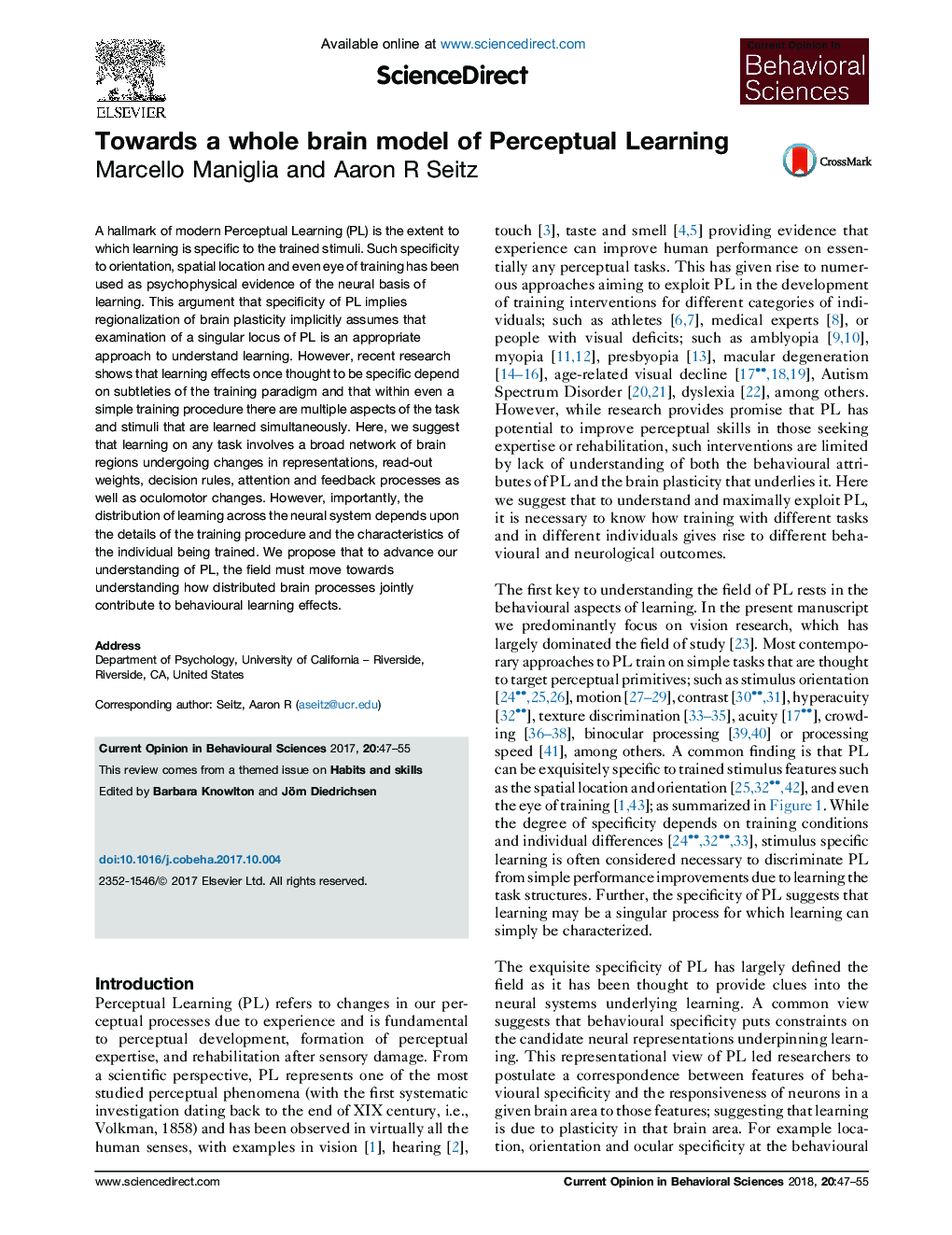| Article ID | Journal | Published Year | Pages | File Type |
|---|---|---|---|---|
| 8838147 | Current Opinion in Behavioral Sciences | 2018 | 9 Pages |
Abstract
A hallmark of modern Perceptual Learning (PL) is the extent to which learning is specific to the trained stimuli. Such specificity to orientation, spatial location and even eye of training has been used as psychophysical evidence of the neural basis of learning. This argument that specificity of PL implies regionalization of brain plasticity implicitly assumes that examination of a singular locus of PL is an appropriate approach to understand learning. However, recent research shows that learning effects once thought to be specific depend on subtleties of the training paradigm and that within even a simple training procedure there are multiple aspects of the task and stimuli that are learned simultaneously. Here, we suggest that learning on any task involves a broad network of brain regions undergoing changes in representations, read-out weights, decision rules, attention and feedback processes as well as oculomotor changes. However, importantly, the distribution of learning across the neural system depends upon the details of the training procedure and the characteristics of the individual being trained. We propose that to advance our understanding of PL, the field must move towards understanding how distributed brain processes jointly contribute to behavioural learning effects.
Related Topics
Life Sciences
Neuroscience
Behavioral Neuroscience
Authors
Marcello Maniglia, Aaron R Seitz,
